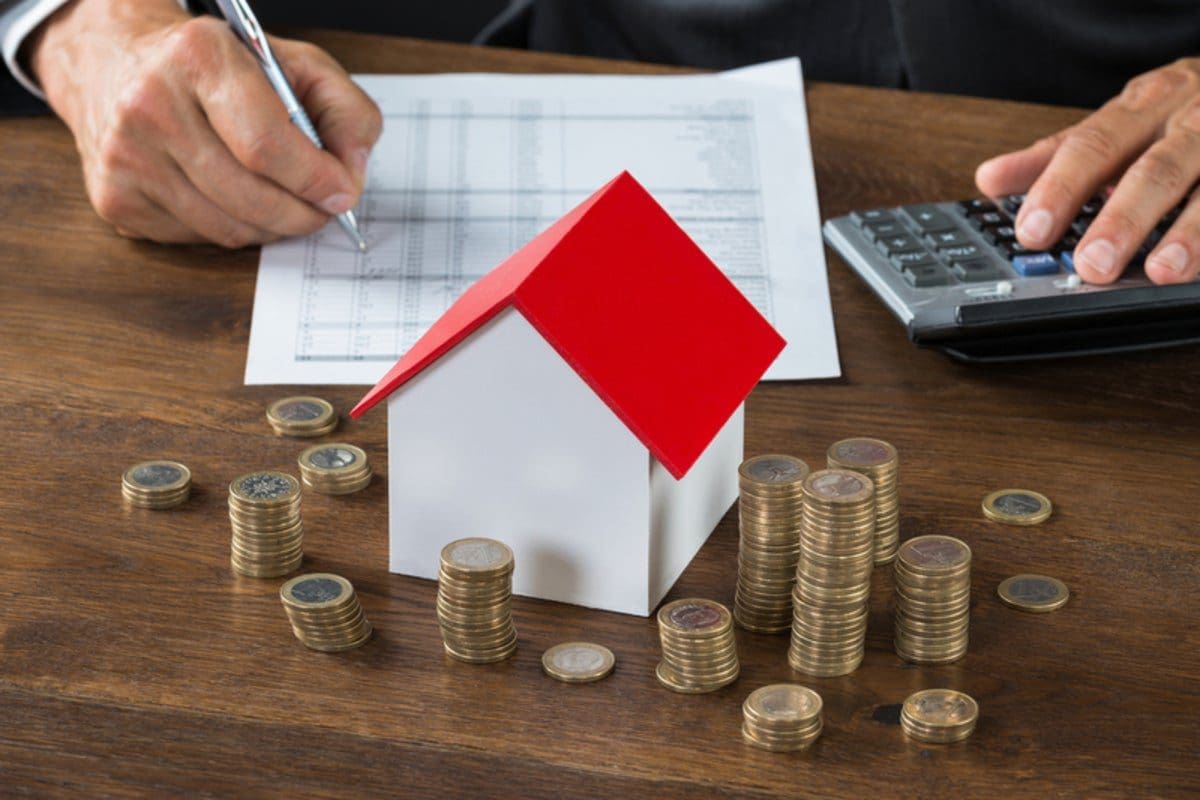As the 87th Texas Legislative Session begins, Texans are still struggling with ever-rising property taxes. In order to help get the situation under control, a property tax expert is advocating for stricter limits on how much property taxable values can increase year to year and endorses a proposal to eliminate a large part of property tax bills altogether.
“What’s happening right now is we’re all getting taxed out of our homes; the values are increasing,” said Chandler Crouch, a North Texas realtor and 2020 Conservative Leader Award winner.
“When you can’t afford your house anymore, guess who can: the person from California that’s going to come over here. And guess who they’re going to vote for: somebody that has no fiscal responsibility at all.”
In 2019, the Texas Legislature passed property tax reform that required elections for some cities and counties that attempt to hike property tax revenues 3.5 percent from the prior year. A tax ratification election is also required of school districts depending on the tax rate the local school board approves.
Did the Texas Legislature do enough to help property taxpayers in 2019?
“They didn’t do enough, but yes, it did help people to some degree,” Crouch replied.
“It’s a beneficial change, but politicians look at property taxes and they’ll say there wasn’t a tax decrease or there wasn’t a tax increase if the amount of tax revenue didn’t change. Or maybe they’ll even look at the rate, but when an actual homeowner’s bill increases and then a politician tells them that they did something for them, but yet I’m paying more money as [an] individual, then there’s a severe disconnect. And that’s where the politicians lose all sight of what’s actually happening to the folks, and that’s where I come into play.”
Crouch volunteers his time and resources to help Tarrant County homeowners protest their property tax values for free. Last year, he helped 20,000 homeowners.
Crouch pointed out what 2019’s property tax reform was able to accomplish.
“Where the Texas Legislature did good is they limited the amount of revenue that could be charged—basically, the amount of increase from one year to the next,” Crouch said. “If they go above a certain level, then they have to have an election, then the people get to decide […].”
“The bad thing is what the politicians didn’t realize … just because they put a cap on that overall number doesn’t mean that you and I are actually going to pay less,” he continued. “So, you and I need protection from not a politician’s perspective, [but] from a human individual perspective: the perspective of the person having trouble putting food in their kids’ mouths.”
Crouch himself has heard from citizens even after property tax reform passed. “They call into my office every single day, crying, losing their home,” he said. “I hear about it statewide.”
People call because they can’t pay their tax bill.
Part of the Problem
A flaw contributing to higher property tax bills, according to Crouch, is current Texas law when it comes to homeowners’ property tax value—the amount set by your local appraisal district, which your local government uses to calculate your tax bill.
“You have to file a homestead exemption in order to cap the amount of taxable [value] increase per year. If you don’t file a homestead exemption, they can increase your property tax value every year, and there’s no limit,” Crouch said. “We’ve got to protect the individual homeowner, the individual property owner, on the amount of increase that the individual sees per year.”
What Should the Texas Legislature Do?
“We must reduce the amount that [appraisal districts are] able to raise our property tax values,” Crouch said. “We need to do that for homestead exemptions, and we need to do that for every single owner of a single-family residential property, whether it’s homestead or not.”
For those who file the homestead exemption, Crouch wants the limit on increasing taxable value to be reduced from 10 percent to 5 percent. Crouch believes a cap is also needed for those who, for whatever reason, do not file a homestead exemption.
“I’ll take any cap you give me. I don’t care if it’s 15 percent per year,” he said.
This would be particularly useful in areas like Tarrant County, where the Tarrant Appraisal District didn’t increase taxable property values as much as they could have in 2020 as part of their response to the Chinese coronavirus.
“They’re going to have to make up for lost time or lost value next year, and so it’s really going to hurt homeowners in a big, big way,” Crouch said.
Crouch also said the Legislature needs to create standard terminology for the entire state when it comes to appraisal districts and property tax values.
How Do We Get to Property Tax Relief?
Chandler pointed to a solution offered by the Texas Public Policy Foundation in 2018. According to the proposal, if the Legislature capped the state’s year-to-year budget growth at 4 percent and assigned 90 percent of the projected budget surplus to cutting school taxes, then the Robin Hood Tax could be phased out in a decade.
“It’s a brilliant solution. It’s a realistic solution that could be done if politicians were not so shortsighted in their vision, if they had long-term goals,” Crouch said. “I think it can happen if the people get a voice and push their politicians to that kind of solution.”
What Can Citizens Do?
“The No. 1 thing we have to do is make sure the right politicians are in office,” Crouch advised. “Unfortunately, the only way to change something is for a politician to support a bill, so it gets passed. That’s the only way we move the needle on this stuff.”
The politicians not supporting property tax reform need to get booted out of office, and we need to make sure that they are supporting the right bills that are actually going to make a measurable difference, and we [the citizens] have to get together.
“For a lot of people, there’s just no room left in the budget, and expenses on everything are going up, and their pay increases at work don’t increase at the same rate,” Crouch continued. “It creates a devastating situation, and it can’t last, and we’ve got to change it.”
Concerned citizens may contact their state representative and state senator. Those wanting to learn more about property taxes may watch videos created by Crouch.





